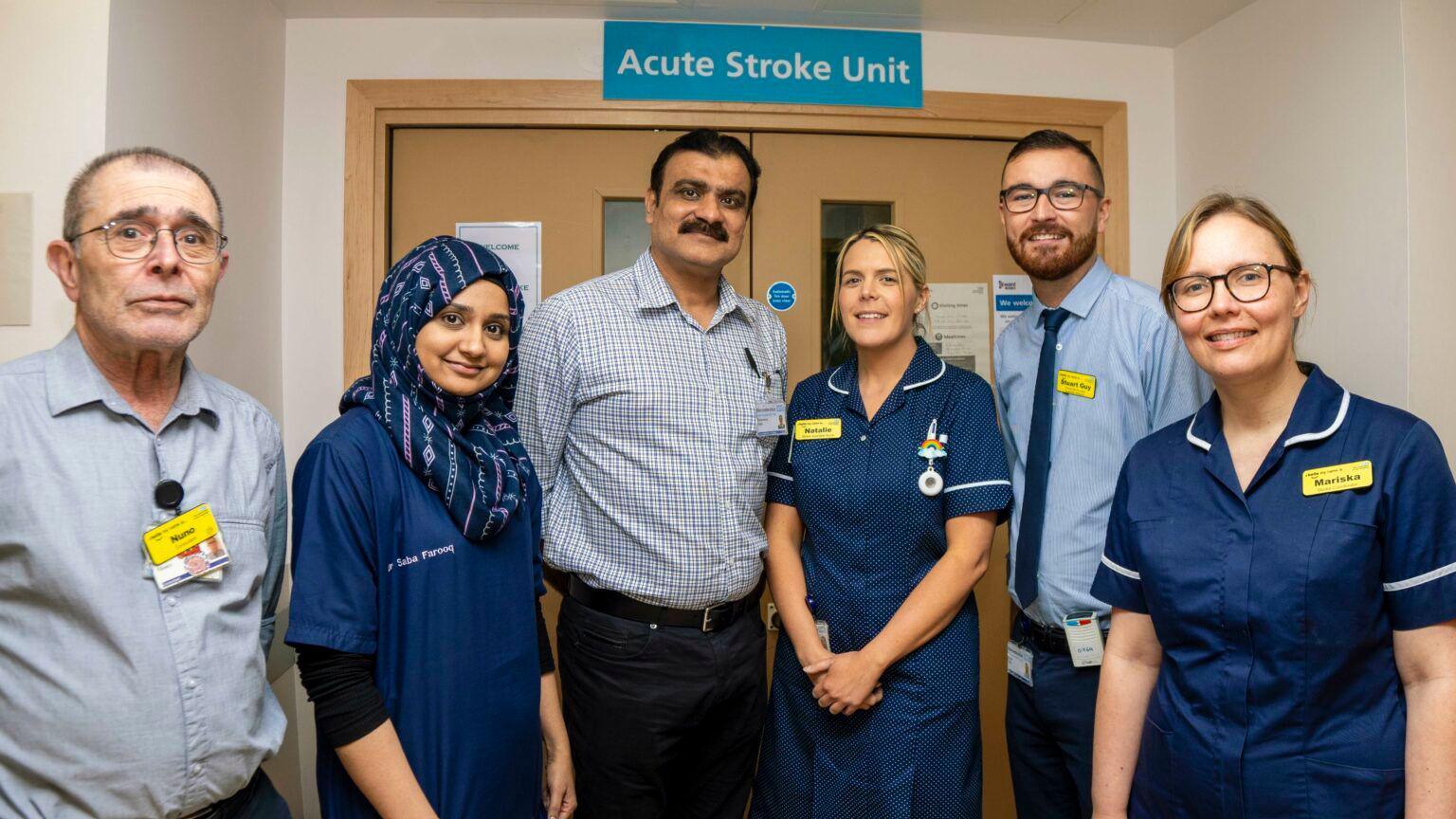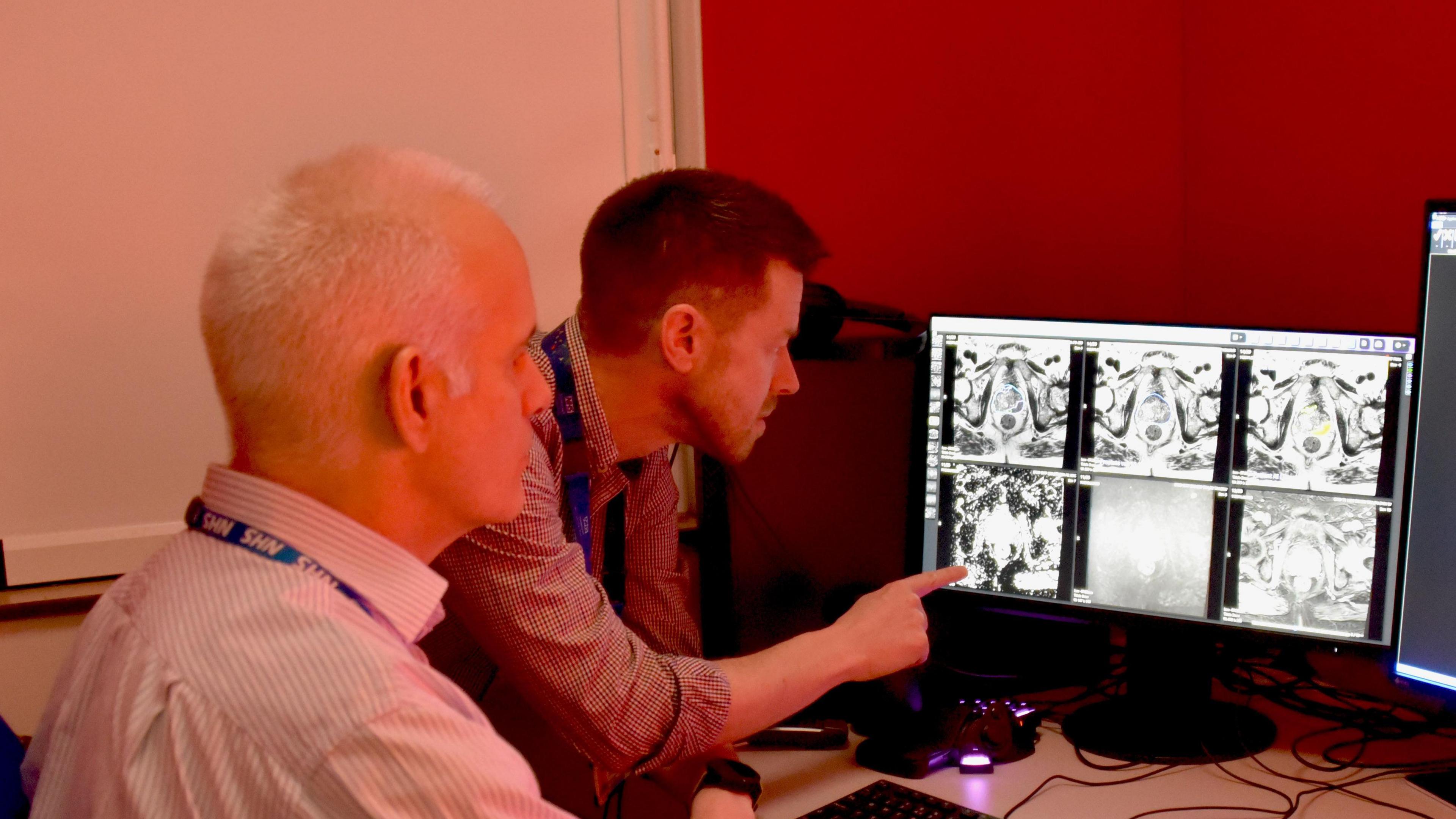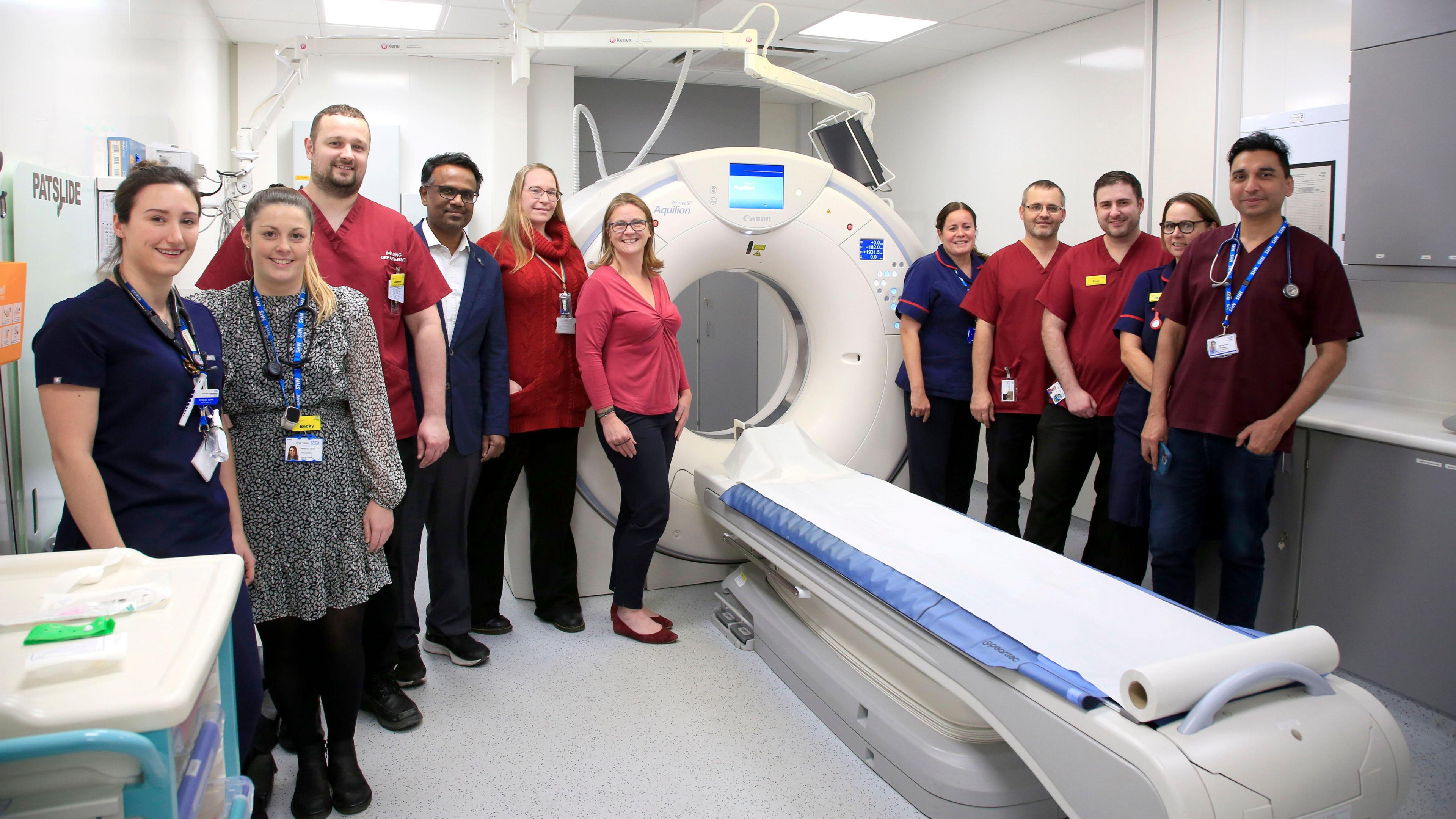Hospital starts using AI to treat stroke patients

The technology is already believed to have saved more than 30 lives
- Published
A new artificial intelligence system that has helped to save the lives of stroke patients has been introduced at Worcestershire Acute Hospitals NHS Trust.
The RapidAI software analyses brain images to help decide whether a patient needs an operation or medication to remove a blood clot.
The new system was put into use in March and it has already helped more than 30 patients receive life-saving treatment they may have otherwise missed.
Stuart Guy, directorate manager for Worcestershire Royal Hospital's stroke unit, said: "The benefits include quicker decision making and improved patient pathway services."
The technology automatically detects large vessel blockages as well as showing blood circulation to the brain in more detail.
The software then gives medics a better idea of a patient’s neurovascular status.
Scans analysed via the software are directly accessible to clinicians at Queen Elizabeth Hospital in Birmingham, where stroke patients can be transferred for further treatment.
Clinical lead Girish Muddegowda, said: “Thanks to this software, clinicians now have advanced decision making capabilities in a time critical situation which is crucial to stroke recovery."
Dr Muddegowda added: “RapidAI is already improving patient stroke services and thrombolysis rates and opening better and quicker communication channels with the tertiary centre in Birmingham for advanced patient care.”
Follow BBC West Midlands on Facebook, external, X, external, and Instagram, external. Send your story ideas to: newsonline.westmidlands@bbc.co.uk, external
Related topics
More stories like this
- Published19 March 2024

- Published7 December 2023
